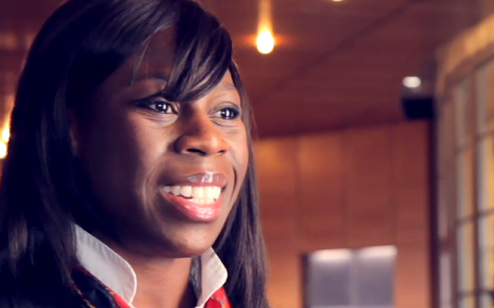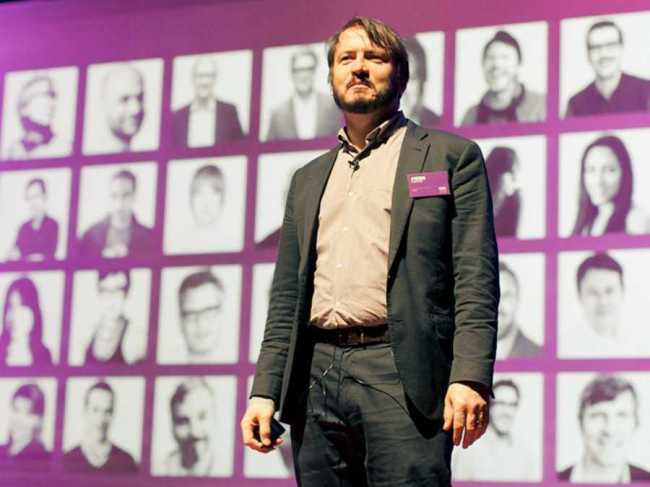Somewhere in Between
the joy of life moment
Try something you might fail, that is so called challenge.
I was inspired by a Wharton School of Business MBA student in Pennsylvania, in order to challenge her confidence as a Nigerian by ethnicity background, she joined the Wharton Wildmen Hockey Team at school, which is not a common sports game for people from African background, and eventually she ended up starting in the championship game.
Do This, Not That-how to handle criticism
- Listen up. Figure out whether the criticism is constructive or simply rude. You may feel hurt when your partner says you’re controlling, but having him point out this flaw may help you change and ultimately save the relationship. If criticism could be helpful, lend all ears and try to learn from it instead of getting defensive.
- Respond calmly. Be respectful no matter what, and thank someone if the feedback is useful. If the critique is uncalled for (that story you wrote was crap!), kill em with kindness. A simple smile makes you the bigger person.
- Don’t take it personally. Try to remove yourself from the situation and focus on what’s being critiqued. That C+ midterm doesn’t reflect your A+ personality! Instead, it’s a reminder to study a little harder next time, skip all that partying the night before, or realise that calculus simply isn’t your biggest strength.
- Manage stress. When we’re constantly on edge, we can feel out of control and unable to respond to criticism with a clear head. So take a deeeep breath to keep those stress levels in check.
- Keep on keepin on’. Remember that the criticism represents just one person’s point of view. Know what your strengths are and don’t let other people’s opinions keep you from working hard towards a goal. If somebody says you’re too short to be a power forward, start working on that jump shot!
The Best Way To Test Yourself Is To Start From Nothing
Piers Fawkes, founder and editor-in-chief of trends analysis site PSFK, knows what it takes to make something out of nothing.
The British entrepreneur started working in the digital space in 1996 — “very early in the U.K.” — and a few years and jobs later, got burned when the dot com bubble burst.
By 2003, he decided he had nothing to lose by packing his bags and following his girlfriend to New York City. “I moved with no money and realised that everything was against me,” he tells Business Insider. “I had no work visa and it was going to be near impossible to get a visa.”
He applied for a £30,000 loan, which gave him enough to get by for a couple of months while he figured out what he wanted to do. “I basically turned up, no papers, no job,” he says. “And that’s when it started.”
“My girlfriend would say, ‘Go get yourself a job’ every morning, and I’d apply for a few jobs,” he continues. “I was applying for jobs hoping that the company would sponsor a visa for a job that I couldn’t start for another nine months after the visa became available. Of course, no employer wanted to even deal with that. I only got a handful of interviews in the 18 months I was here. It was a near impossible situation. Everything was stacked against me being here.”
“I became a maniac about writing and sharing articles. Contributors would turn up and share stories about what they were seeing. Eventually, aggregation began to kick in. People began to look to us for a judgment call on what’s interesting.”
So he did what many New Yorkers do to earn their right to live in the city: He hustled. For Fawkes, that meant becoming a professional dog walker and doing “all the crappy jobs someone would do moving into the country.”
But he also found a creative outlet, which would eventually become his startup. “I took my girlfriend’s bicycle, camera, and started taking photographs, finding all these amazing things around the city. I found these new ideas in terms of culture, business, and decided to share them.”
He noticed that there was an emerging blogging community. “It was hard to miss,” he says. “I went to this party at [Gawker founder] Nick Denton’s apartment, and this woman stands up and says, ‘I’m going to start this website, ‘The Huffington Post.’”
So he started a blog of his own, PSFK.com. “I had this URL [from an earlier venture], and I decided to save myself $25 and use the URL I had before,” he says. “I didn’t think it would turn into anything. I became a maniac about writing and sharing articles. Contributors would turn up and share stories about what they were seeing. Eventually, aggregation began to kick in. People began to look to us for a judgment call on what’s interesting.”
Now PSFK has become a larger media site, documenting trends in business, within the workplace, and around the world. It also has a consultancy arm, which works with big-name clients like Apple and BMW to tell them what’s cool and trending.
“About six months after starting, Anheuser Busch said, ‘You seem to know about trends, can you write a trends report?’” he explains. “I’m paying off a loan, walking dogs, and I thought, ‘Hey, I have an advertising background.’ I realised I had a bunch of writers and contributors in the U.K. who can send me data about what’s happening. In New York City, I can identify trends. So I thought, of course I can write the U.K. trends report. Today, with the collapse of the world economy, providing private advice to companies has really supported our growth.”
As PSFK has grown, so has the nature of its work. For example, it’s currently helping revitalize downtown Bogota, Colombia, through a special project, My Ideal City. Well-known architect and city planner Gary Hack is crowdsourcing ideas about how to revitalize the city, which he’ll eventually present to the mayor and chair of architecture. PSFK did a trends analysis in urban living, and will be delivering its findings to the city.
“What’s my job?” asks Fawkes. “Making sure that our thinking is the most progressive that there is out there.”
Today, he has 15 employees in New York, along with 20 regular contributors and freelancers. He hasn’t taken on any outside funding. “If someone gave us a million dollars, we would have hired a bunch of staff, but we would have done the same things.”
To begin the journey of change, we must put on the boots of self awareness.
That 10%
I’m somewhat competitive. When I start to do something, within a short period of time I start wanting to do it better than other people.
OK, I’m overly competitive.
Take cycling. I’m faster, fitter, etc. than the average person. But compared to the fast guys, I’m nothing. They can drop me within a few miles. Drives me crazy. Makes me ride more and train more and spend tons of hours on a bike–and for what? So I can hang with them for a couple more miles? So my time up a certain mountain is only 30 per cent slower than theirs instead of 40 per cent?
The kind of improvement has no real importance. Sure, I may get in better shape, but at that point the improvement to my overall health is incremental at best. And in the meantime I spend hours on cycling that I could spend on working towards more important goals.
Or I could just spend more time with my family, the most important goal of all.
So this year I’ll stay in good shape but I won’t worry about working to keep up with the fast guys: One, I never will, and two–it really doesn’t matter if I do.
Think about something you already do well but are trying hard to do even better. Then weigh the input with the outcome.
Sometimes “good” truly is good enough, especially if that 10 per cent gain is hugely disproportionate to the pain required to reach it.
Categories
Instagram
No Instagram images were found.
Calendar
May 2024 M T W T F S S 1 2 3 4 5 6 7 8 9 10 11 12 13 14 15 16 17 18 19 20 21 22 23 24 25 26 27 28 29 30 31
Blogs I Follow

